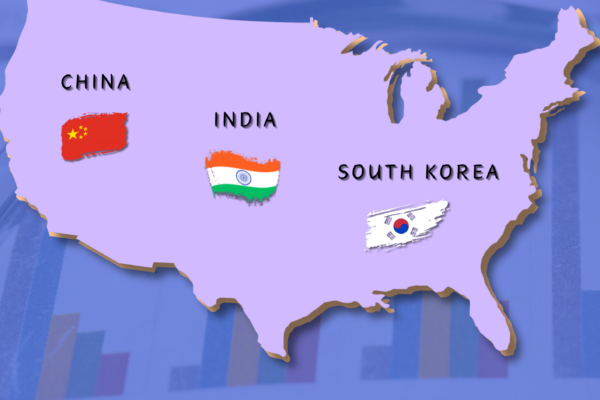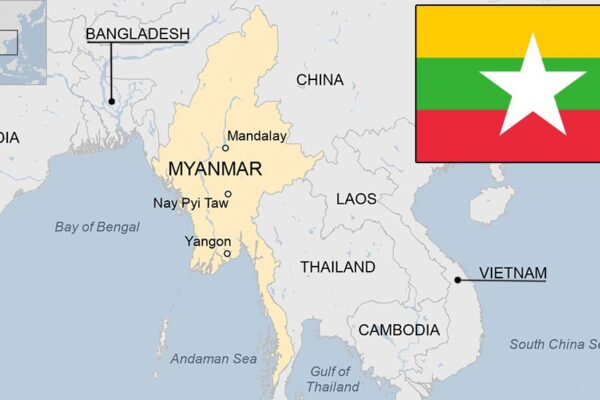Police video of detained unofficial Vietnamese monk allays fears
Supporters of an unofficial monk who had become an internet hit but then disappeared for a few days after Vietnamese authorities detained him last week breathed a sigh of relief on Monday after police published a video of him receiving a new national ID card. Monday’s video of 43-year-old Le Anh Tu, better known as Thich Minh Tue, allayed concerns after an interview with him Friday on a state-run news program had raised suspicions about his well-being, and that he was speaking under duress. For the past month, Le Anh Tu had drawn ever-increasing attention on social media for his pilgrimage across Vietnam. Along the way, he also unwittingly became a symbol of what many people say is a lack of religious freedom in the country. Sporting a shaved head, patched garments and an alms bowl, Tue is not recognized as a monk by the state-sanctioned Buddhist group — and indeed did not claim to be a monk, just someone trying to follow Buddha’s teachings. Authorities apparently became alarmed at the attention Tue was getting, and on June 2, officials detained him, saying he stopped his trek amid concerns about threatening social stability. But monks with him said authorities forced them to disband in a midnight raid and took him to an undisclosed location. His case has drawn attention from a U.S. lawmaker and international rights groups. Viewed with suspicion For several days, the monk wasn’t heard from, spurring public concern. Then on Friday, June 7, the state-run Vietnam Television, or VTV, aired a three-minute news bulletin in which Tue said he was safe and had chosen to end his pilgrimage because of traffic concerns. But the VTV video was viewed with suspicion by social media users who noted that Tue was interviewed in front of a white-painted tree trunk, which is a marker typically found in strictly controlled areas, such as military barracks and prisons. They suggested Tue’s hand movements indicated that he was under stress and alleged that there was no reflection of his interviewer in his eyes. In that interview, Tue tells reporter Lien Lien that he “would have continued to cultivate outside [on a pilgrimage] if there had not been so many crowds, affecting traffic safety and social order.” In the video, which shows footage of him being thronged by what appears to be hundreds of followers, VTV slams what it says is false information about Tue’s arrest over the past week and claims that “opposing forces” have exploited his case “to distort Vietnam’s policy on religion.” ‘More reliable’ Then, on Monday, a second video of Tue appeared that allayed people’s concerns. It was a rather mundane video published by police in Gia Lai province, in southern Vietnam where his permanent residence was registered, showing Tue receiving a new national ID from the police department’s Order and Administration Management Division. In the video, Tue enters the division’s “Office for ID application and pick-up,” where he meets with a police officer who explains the card’s benefits, such as its use for air travel and health check-ups. Tue is then interviewed about his thoughts on receiving the new ID, which he says “will be very good if it can be used to ensure my right to self-cultivation.” The video ends with Tue saying that he is healthy enough to return to his study of the Buddha’s teachings. A screenshot from a Youtube video uploaded June 9, 2024 shows an interview aired by VTV with independent monk Thich Minh Tue, left, in which he said he agreed to stop walking the streets. (VTV24 via Youtube) On Monday, Nguyen Viet Dung, a former prisoner of conscience who on June 7 launched a petition demanding that Vietnamese authorities disclose Tue’s whereabouts, told RFA Vietnamese that while the public was “skeptical” about the VTV interview, “many agreed that the Gia Lai provincial police video was more reliable.” “The people’s greatest wish was to see their beloved monk be safe,” he said. “Therefore, their greatest wish, to a certain extent, has been fulfilled.” Family request to ‘protect image’ Meanwhile, a lawyer on Monday dismissed a claim made in the VTV video that Tue’s family had called on authorities to “handle those who took advantage of [his] images and uploaded them to social media,” saying that only Tue has the right to make such a request. On June 9, a document requesting the assistance of authorities, purportedly sent by Tue’s older brother Le Anh Tuan to police in Gia Lai’s Ia To commune, was circulated online, as well as a document asking police to verify that Tuan is Tue’s sibling. The second document was approved and signed by Ia To Commune Police Captain Ksor Hue. Neither of the documents were dated and RFA was unable to independently verify their authenticity. Regardless of whether the documents were indeed sent by Tue’s brother, lawyer Ha Huy Son of the Hanoi Bar Association told RFA that they would still be invalid under Vietnamese law. “As Mr. Minh Tue (whose real name is Le Anh Tu) is over 18 years old and has sufficient behavioral and legal capacity, defending his interests and privacy is his responsibility – no one can do it for him,” he said. Attempts by RFA to reach Tuan to verify the information in the two documents went unanswered Monday. Translated by Anna Vu. Edited by Joshua Lipes and Malcolm Foster.





